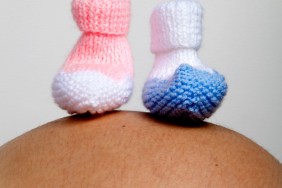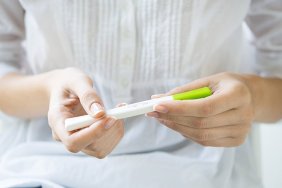The short answer: no, at-home gender prediction kits don’t work. They’re about as reliable as thinking carrying low means a boy or bad morning sickness means that you’re having a girl.
“At-home gender prediction kits are generally considered unreliable,” says Dr. Felice Gersh, M.D. OB/GYN, the founder/director of the Integrative Medical Group of Irvine and the author of PCOS SOS Fertility Fast Track. “There are none that can be recommended, but the least likely to be accurate are those that measure testosterone in the urine, supposedly as a sign of a male baby. It’s okay to use these for fun, but you’re as likely to get it right by tossing a coin.”

What is a reliable way for parents-to-be to know the gender of their baby?
While most parents don’t find out the gender of their baby till the anatomy scan at about 17-20 weeks, there are ways to find out sooner. “There are tests that can detect fetal DNA in the maternal blood sample as early as seven weeks gestation. Of course the old standard is the obstetrical ultrasound performed in the second trimester, which in nearly all cases can detect the fetal sex. That said, an ultrasound performed as early as 12 weeks gestation can sometimes see the fetal genitalia adequately to determine the gender as well. It’s best to reconfirm at around 19 weeks, as mistakes have occurred.”
And the standard amniocentesis, typically performed at 16-17 weeks can also determine fetal sex.
Still, for couples who buy ovulation prediction kits with their eyes wide open, using them can be another fun thing to do as they await the arrival of their baby!








